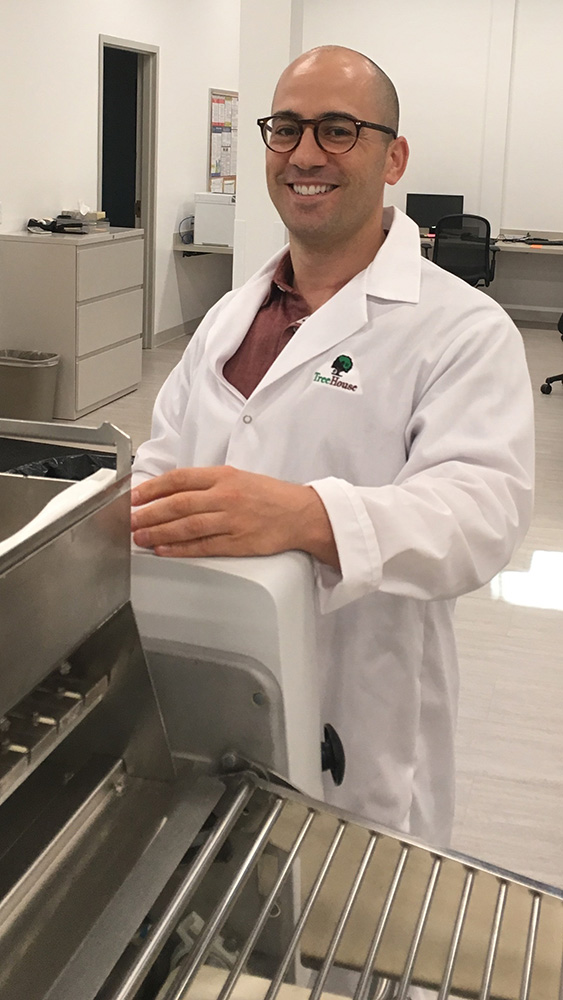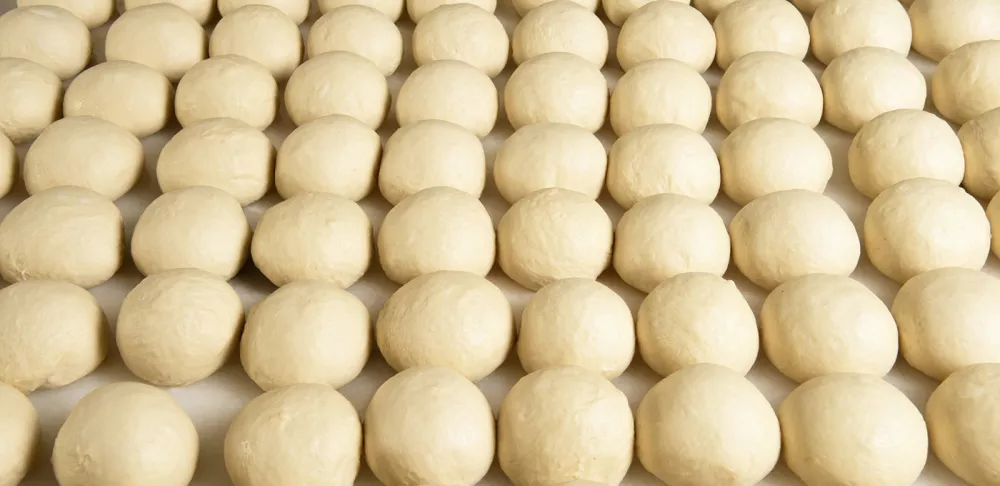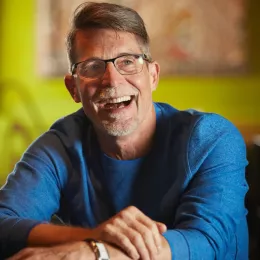Geoffrey came to the Institute of Culinary Education’s New York campus in 2012 for a professional development course to explore his love for baking and a possible career change. The brand strategist realized what he wanted to do for the rest of his life and enrolled in the 10-month Pastry & Baking Arts program.
“The instructors were extremely knowledgeable,” Geoffrey says. “Chef Kathryn Gordon was always saying, ‘you’ll get out of this what you put into it,’ and it was so true because there was so much offered — not just the current module that you’re taking, but there are so many extra courses and classes that you can take to learn more about the field. It’s your arsenal of knowledge, and that to me was one of the greatest things about ICE.”
Geoffrey externed at Cafe Boulud and interned at Dominique Ansel Bakery and The Dutch for additional experience in the industry while deciding whether to pursue food science.
“Chef Michael Laiskonis did a demonstration with sodium alginate, and I was just blown away by chemistry and food,” Geoffrey says. “I worked with a lot of hydrocolloids, and the technical aspect of interactions was something I was more passionate about than creatively displaying products on a plate for customers.”
He opted to continue his education in Bakery Science online through the Institute of Baking, followed by a master’s program in Food Science at North Carolina State University, where he’d earned his bachelor’s degree years earlier.
Geoffrey transitioned from restaurants and bakeries to the manufacturing and large-scale production side of the food industry first as a product development food technologist for Garden Lites, then as a food technologist for Salem Baking Company, product development intern at PepsiCo and grad student technician in a USDA peanut lab. His biggest success came with the creation of two products from concept to commercialization: a trail mix cookie and gluten-free cranberry oatmeal white chocolate.
“That was my greatest achievement because I had customer interaction and created a product that is still on shelves,” he says of the experience with Salem Baking Company and Whole Foods. “Our company didn’t have that much knowledge of gluten-free, and my first food manufacturing job out of ICE was with a gluten-free manufacturer, so my knowledge increased tremendously with gluten-free flour. I was able to work with some flour mills to reformulate a gluten-free flour that was a little bit more palatable.”
 Today, he’s developing private label refrigerated dough products that likely end up at your grocery store. “I love it because we reach a lot more people than you ever would in a restaurant or a bakery,” Geoffrey says. “My day-to-day responsibility involves product and process improvements along with some innovation. Ingredient interaction is crucial to understand; after all, it is the structure for any great product whether it’s in a manufacturing setting or your home kitchen.”
Today, he’s developing private label refrigerated dough products that likely end up at your grocery store. “I love it because we reach a lot more people than you ever would in a restaurant or a bakery,” Geoffrey says. “My day-to-day responsibility involves product and process improvements along with some innovation. Ingredient interaction is crucial to understand; after all, it is the structure for any great product whether it’s in a manufacturing setting or your home kitchen.”
Geoffrey reverse engineers recipes, experiments with ingredients and tests new products with pilot runs. He incorporates his food safety and food chemistry expertise with his pastry education and restaurant experience.
“That’s a successful food scientist: understanding all aspects,” he says. “You’re not just developing a formula, you’re a quality investigator and a microbiologist at the very front of the line. You have to understand all of those aspects before you can actually make something.”
His food science degree added the expertise to address allergens, whether gluten, dairy or peanuts.
“If you love baking and culinary, but you want more technical aspects, I would encourage you to look into food science programs across the country,” Geoffrey advises students. “If you graduate with a food science degree and you have that culinary or pastry knowledge, you’re going to be a lot more successful than if you just have one. Plus, the benefits are better working in the corporate world: Full medical and dental are wonderful things to have.”
It took Geoffrey 10 years after changing careers to land where he is now, and he encourages the next generation of chefs and food scientists to explore their options, ask chefs for advice and research the programs bridging the two fields. “I still have a long path ahead of me,” he says. “It takes time. You’re not going to figure out your entire life overnight. It’s going to change.”
Start your culinary or pastry path in ICE’s career training programs.




